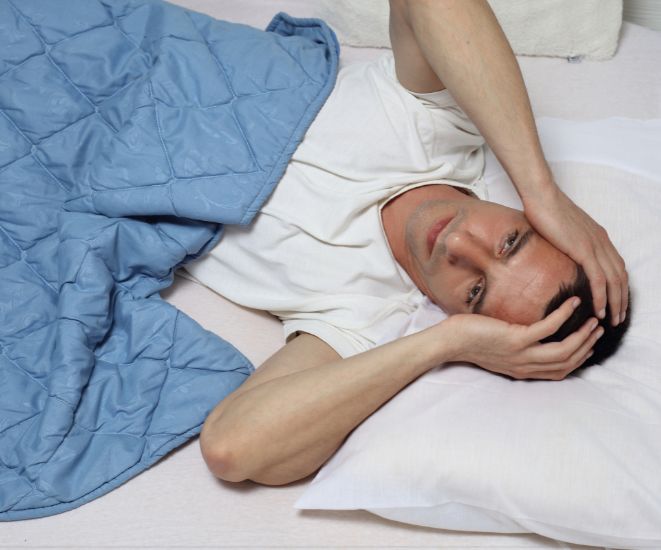From Tossing to Turning
When we sleep well, we feel good and can do our best during the day. But sometimes, people have trouble sleeping. This can be a sign of a sleep disorder.
4 Signs of a Sleep Disorder
1. Feeling Tired During the Day
One big sign of a sleep disorder is feeling very tired during the day. You might sleep for a long time at night but still feel sleepy in the morning. This can make it hard to focus at school or work. You might also feel cranky or have trouble remembering things.
If you feel tired all the time, it’s important to talk to a doctor. They can help figure out why you are so tired and what to do about it.
2. Trouble Falling Asleep
Another sign of a sleep disorder is having trouble falling asleep. If it takes you more than 30 minutes to fall asleep, you might have a problem. You may lie in bed thinking about many things and just can’t relax. This can happen with a disorder called insomnia. People with insomnia may feel anxious about going to bed, making it even harder to sleep.
If you can’t fall asleep, you can try some things to help:
- Create a bedtime routine: Doing the same thing each night can signal your body that it’s time to sleep. You might read a book, take a warm bath or listen to calming music before bed.
- Limit screen time: Try to avoid phones, tablets and TVs for at least an hour before bed. The light from screens can trick your brain into thinking it is still daytime.
- Keep a cool room: A cooler room can help you feel more comfortable and sleepy.
3. Waking Up Often During the Night
Many people wake up once or twice during the night. But if you wake up a lot and can’t go back to sleep, this could be a sign of a sleep disorder. Waking up frequently can make you feel tired the next day, and it can affect how you feel overall.
Some tips to help with waking up at night include:
- Avoiding caffeine and heavy meals before bed: Caffeine can keep you awake, and heavy meals can cause discomfort.
- Practicing relaxation techniques: Deep breathing or meditation before bed can help calm your mind and body.
4. Snoring or Breathing Problems While Sleeping
If you snore loudly or have trouble breathing while you sleep, this could mean you have a sleep disorder called sleep apnea. People with sleep apnea may stop breathing for a short time while they sleep. This can wake them up and make them feel tired during the day.
If you think you might have sleep apnea, it’s very important to see a doctor. They can do tests to check how you breathe while you sleep.
Understanding Idiopathic Hypersomnia
Idiopathic hypersomnia is a sleep disorder that makes people feel very tired during the day, even after getting enough sleep at night. People with this condition often sleep for long hours but still wake up feeling sleepy and unrefreshed. Unlike regular tiredness, this feeling doesn’t go away with naps or extra sleep. This can make it hard to focus on tasks or stay awake during activities like work or school. Doctors are still trying to understand why some people have idiopathic hypersomnia, but there are treatments that can help manage the symptoms and improve daily life.
Treatments for Sleep Disorders
If you notice any of these signs, it’s important to talk to a doctor. Many treatments can help with sleep disorders. Here are some common options:
- Sleep hygiene: This means making good habits around sleep. Keeping a regular sleep schedule by going to bed and waking up at the same time every day can help.
- Medications: Doctors can prescribe medicine for sleep disorders. These medicines can help you fall asleep and stay asleep, but they should be used with care.
- CPAP machines for sleep apnea: If you have sleep apnea, your doctor may suggest using a CPAP machine. This machine helps you breathe better while you sleep.
- Cognitive Behavioral Therapy (CBT): This therapy helps change the thoughts and behaviors that make it hard to sleep. It can teach you how to relax and create a better sleep routine.
Start Improving Your Sleep
Understanding the signs of a sleep disorder is the first step to feeling better. If you or someone you know has trouble sleeping, don't hesitate to reach out for help. There are many ways to treat sleep disorders and improve your sleep. Good sleep can lead to a happier and healthier life!
